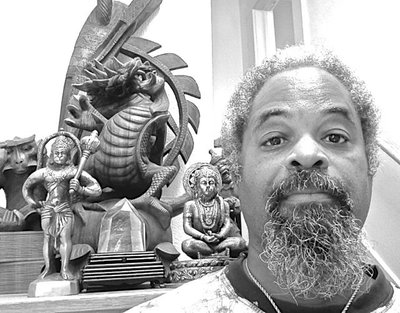
It’s summer, and that means rites-of-passage time when I do workshops for African-American related youth on preventing addiction and problems related to sexuality, whether or not you’re under the influence. I combine 21st-century knowledge with 25th-Dynasty wisdom, i.e. African Old School. It’s about keeping your spirits, your wits and your body safe, as well as safeguarding those around you.
It comes down to and improving upon “Who raised you!?” Among my peeps, that phrase usually means you had absent or questionable home training. Or, conversely, you had good home training and you “actin’ like you ain’t got no sense,” aka Motherwit.
Watching the UO basketball player sexual assault situation, rites of passage and “Who raised you?” come to mind. I played in my mind, “What if they (males and females) were my kids?” A source told me the athletes played hooky from a structured rites-of-passage program to go to that party. If so, I’m thinking maybe the approach wasn’t African Old School/Motherwit enough.
It’s probably not reasonable to expect the UO and Eugene-Mayberry to replicate Black Old School, but neither they, nor the young woman, can go back “home.”
My exemplars for black basketball player behavior are Paul Robeson, my father and Kareem Abdul-Jabbar. They exemplify that college athletics is merely a gateway through an intellectual life, into one of service and activism.
Kareem recently wrote in Time magazine: “You can’t go home again … Wolfe, who took that title with permission from writer Ella Winter, used it to mean that after we leave home and are battered about by our adventures in life, we are changed. And in our disillusioned mind, ‘home’ becomes a romanticized symbol of our innocence, in which we dreamed limitlessly and were loved unconditionally.”
Speaking of losing innocence through battering adventures, if two guys take one woman into a bathroom in someone else’s house while one stands outside as lookout, and one acknowledges that he wouldn’t want what was done in that bathroom to happen to his mom or sister, is it shooting beyond their conceptual arc that this woman should be treated as if she is a daughter, a sister, a potential mom? I’d say they knew they were doing wrong, by anyone’s standards. To say they’re being lynched … white folks … pleeze.
Paraphrasing Frederick Douglass, it is easier to build strong children than to repair broken adults. Having raised daughters and sons in this community who’ve avoided being either targets or perpetrators of sexual assault (but who have not avoided being racially targeted), I have tried to pass on the collectivist adage I was raised with: When you are out in society you are not there representing yourself, you are representing us (black Americans specifically, and the best of humanity generally). So hold yourself to a standard of behavior better than those around you, particularly when they’re acting like they ain’t got no sense.
What role should the UO community take in its culturally competent in loco parentis avatar, in raising what the Old School Black Community would call an upright strong black man? A dangerous black man, i.e., law-abiding, intelligent, articulate, activist, armed with a college degree?
I’m glad attention is being paid to the experience of the victim, without overt regard to her race. But whatever privileges a woman might have because of her race, her gender often makes her an unprotected target, prey to white men and “honorary” white men like certain black male athletes who are not held to culturally specific aspirational standards of behavior.
A salient set of questions for women of any race or gender expression is how do I detect whether this person will harm me? It’s not like serial rapists of any race in college settings can’t simulate being harmless, before abruptly turning on you.
My kids (and the vast majority of LCC rites-of-passage kids) have so far successfully avoided being criminals, perpetrators or victims of sexual crimes, or even accused of such. Our upbringing prepares us against inevitable targeting either as a victim or a perpetrator. We are taught to make appropriate adjustments in character and action as if we’re an active target.
My hope for the “sister” in this incident is that she comes back strong, like Maya did from similar circumstances, saying, “Every human grouping, whether it’s just two people, a family, people in the neighborhood, people in the city, in a nation, a tribe, a species; people live in direct relation to the heroes and the sheroes they have.”
I have relatives who were actually lynched; I was raised with Emmett Till as a cautionary tale. A black man married to a white woman was lynched in Eugene (half his body was found in the Willamette). I’d say the use of the term “lynching” is made by people whose families weren’t targets of actual lynching, therefore their home training did not include how to conduct yourself as if you were a target.
Black women living in Eugene during the time of that lynching faced rape, broad-daylight-attempted kidnapping and abduction, racial attacks and had no recourse to police, nor could they appeal to the district attorney to prosecute, as the Eugene Klan was quite active yet less overtly violent than in Mississippi.